Matching numbers Extra Challenge Worksheets for Ages 5-6
5 filtered results
-
From - To
Celebrate your child's learning journey with our "Matching Numbers Extra Challenge Worksheets" designed specifically for ages 5-6! These engaging and interactive worksheets enhance number recognition skills while providing an enjoyable learning experience. Our carefully crafted activities are perfect for honing essential math skills, supporting children in matching numbers and strengthening their understanding of numerical concepts. Designed to challenge young learners, these worksheets encourage critical thinking and independent work. Ideal for both classroom and homework, they offer a fun way to reinforce educational concepts. Explore learning through play with our vibrant and stimulating worksheets that make mastering numbers enjoyable!
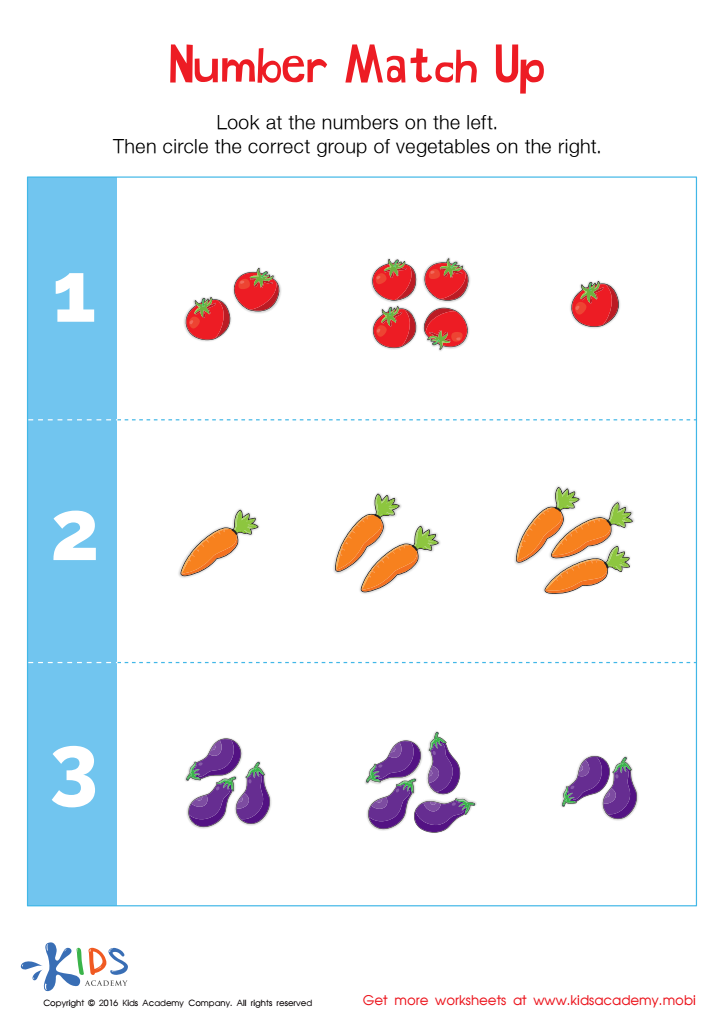

Number Match Up Worksheet
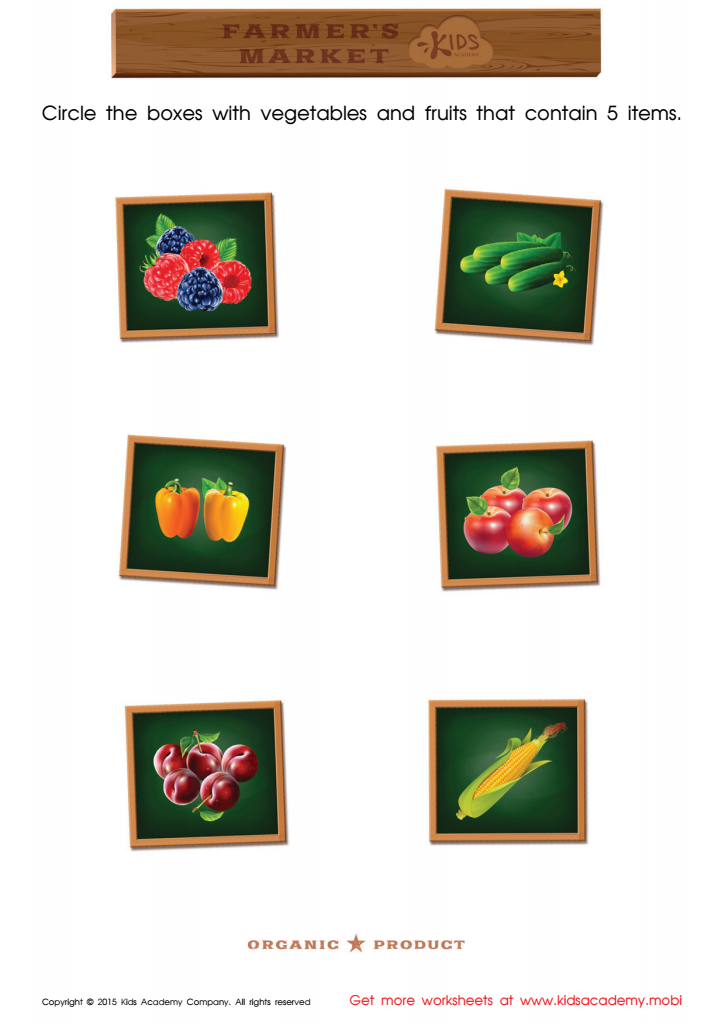

Count and Match Vegetables 1 – 7 Math Worksheet
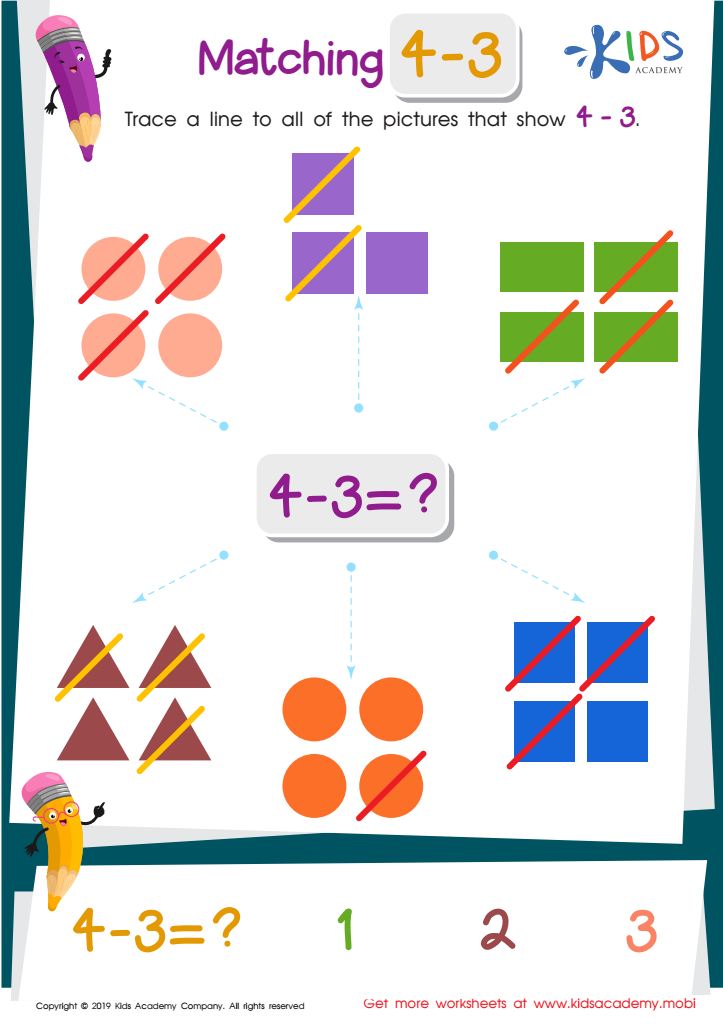

Matching 4 – 3 Worksheet
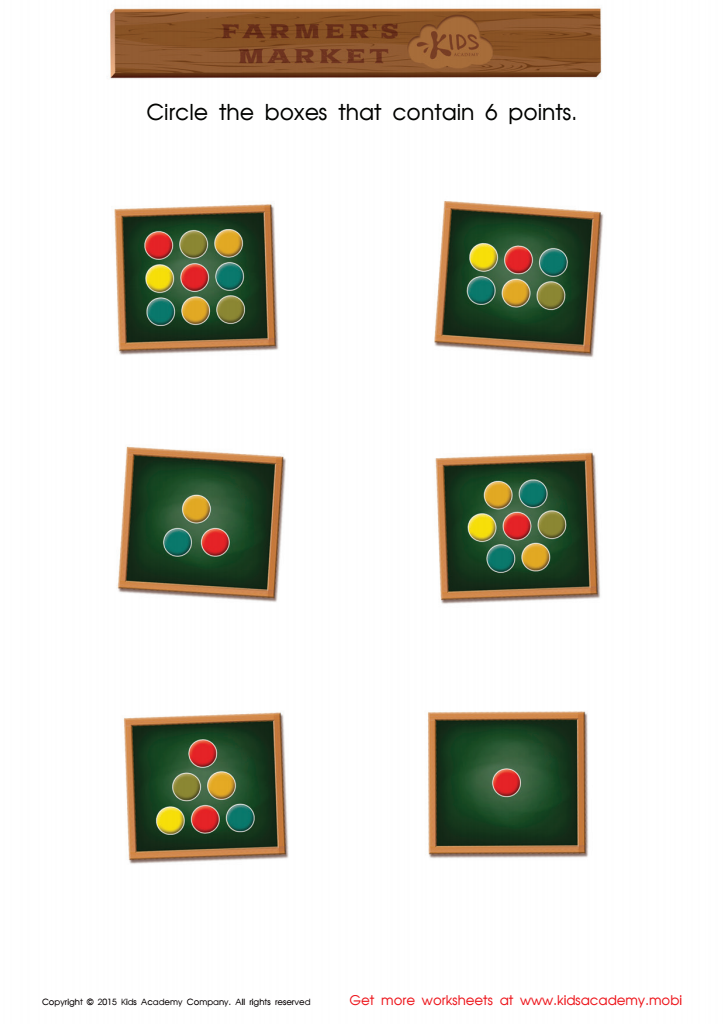

Count and Match Points 6 Math Worksheet
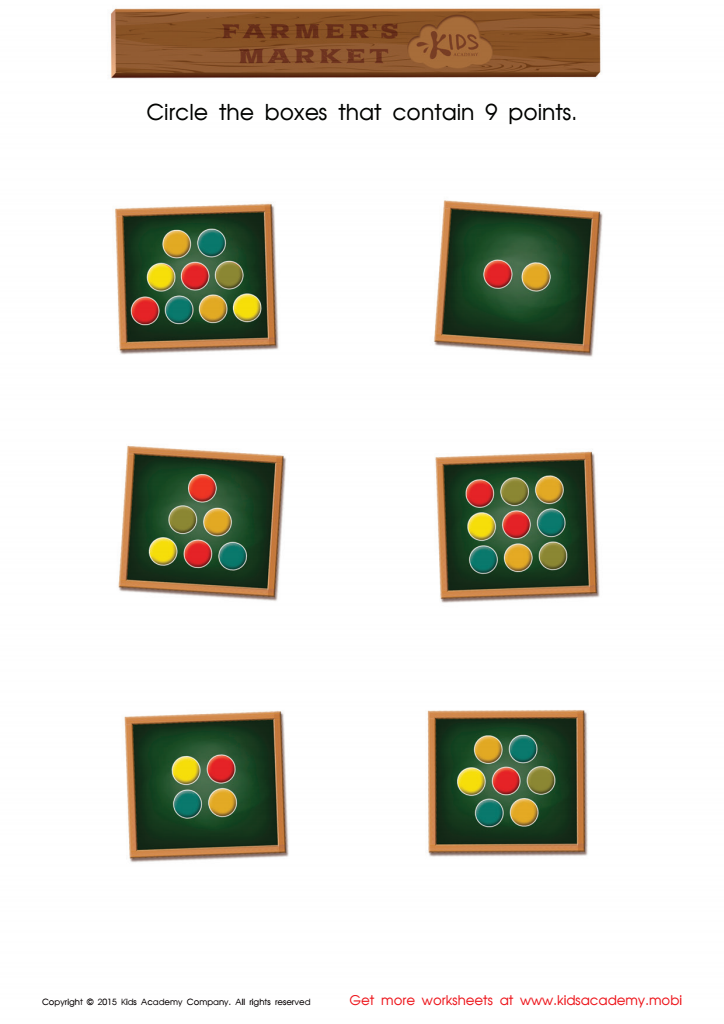

Count and Match Points 9 Math Worksheet
Matching numbers is an essential skill for children ages 5-6, laying the foundation for more complex mathematical concepts. At this developmental stage, children are naturally curious and eager to explore the world around them. Engaging in activities that involve matching numbers nurtures critical thinking and problem-solving skills, helping children to develop number sense, which is crucial for later mathematics.
Furthermore, early exposure to number matching encourages fine motor skills as children manipulate objects in order to pair them correctly. This process enhances hand-eye coordination and builds the necessary dexterity that is vital for writing and other physical tasks.
Parents and teachers should also recognize that combining fun with learning creates a positive attitude towards education. Matching numbers can be turned into playful games, fostering an environment of support and enthusiasm. When children actively participate in enjoyable activities, motivation increases, leading to improved concentration and retention of information.
Ultimately, matching numbers can serve as a springboard into more advanced math concepts, facilitating a smoother transition into first grade and beyond. By investing time in this early challenge, parents and teachers promote cognitive development, social skills, and a lifelong love of learning in their children.

 Assign to My Students
Assign to My Students





.jpg)

%20(1).jpg)








